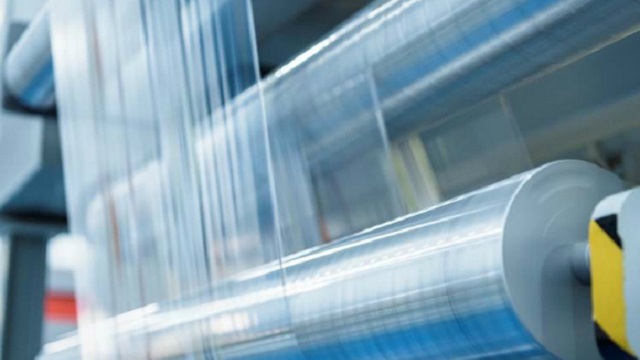Introduction to Plastic Pallets
Plastic pallets are flat, durable platforms designed for the storage, transportation, and distribution of goods. Unlike their wooden or metal counterparts, plastic pallets are crafted from high-density polyethylene (HDPE) or polypropylene (PP), offering unique advantages in terms of durability, hygiene, and environmental sustainability.
Over the past two decades, plastic pallets have gained significant traction across industries such as food and beverage, pharmaceuticals, retail, and automotive. Their versatility, combined with a growing emphasis on sustainability and efficiency, has positioned them as a preferred choice for businesses worldwide.
2. Key Advantages of Plastic Pallets
Lightweight and Durable:
Plastic pallets weigh significantly less than wooden or metal pallets, making them easier to handle and reducing shipping costs. Despite their lightweight nature, they are remarkably strong and can support heavy loads without compromising their structural integrity.
Resistance to Moisture and Weather Conditions:
Unlike wooden pallets, plastic pallets are impervious to moisture, eliminating concerns about rotting, warping, or splintering in humid conditions. Additionally, they can withstand extreme temperature fluctuations without becoming brittle or losing shape.
3. Hygiene and Safety Benefits of Plastic Pallets
Ease of Cleaning and Sanitation:
Plastic pallets have smooth, non-porous surfaces that can be easily cleaned and sanitized. This makes them ideal for industries where hygiene is critical, such as food processing and pharmaceuticals.
Reduced Risk of Contamination:
Wooden pallets often harbor pests, bacteria, and mold, posing a risk to the products they carry. In contrast, plastic pallets do not absorb liquids or harbor contaminants, ensuring safer transportation and storage.
4. Environmental Benefits of Plastic Pallets
Recyclability and Sustainability:
Plastic pallets are highly recyclable. At the end of their lifecycle, they can be ground down and remolded into new pallets or other plastic products, contributing to a circular economy.
Longer Lifespan:
Compared to wooden pallets, which degrade quickly, plastic pallets have a significantly longer lifespan. This reduces the frequency of replacements, leading to less waste generation over time.
5. Cost Efficiency and Long-Term Savings
Lower Maintenance Costs:
Plastic pallets require minimal maintenance. They do not need treatments for pests or moisture-proofing, unlike wooden pallets, which demand regular upkeep.
Reduction in Shipping Expenses:
Their lightweight design helps reduce shipping costs, particularly in industries that rely on air freight or bulk transport. Additionally, their consistent dimensions allow for efficient stacking and storage.
6. Versatility in Use Across Industries
Plastic pallets are used in various sectors, including:
– Food and Beverage: Ensuring hygienic handling of perishable items.
– Pharmaceuticals: Meeting stringent safety and sanitation standards.
– Retail: Supporting high-volume, diverse goods.
– Automotive: Handling heavy and irregularly shaped components.
Customization options, such as anti-slip surfaces or RFID tracking, further enhance their applicability.
7. Comparison: Plastic Pallets vs. Wooden and Metal Pallets
| Feature | Plastic Pallets | Wooden Pallets | Metal Pallets |
|---|---|---|---|
| Durability | High | Moderate | Very High |
| Weight | Lightweight | Heavy | Very Heavy |
| Hygiene | Excellent | Poor | Moderate |
| Cost | Moderate (long-term) | Low (short-term) | High |
Plastic pallets strike a balance between affordability, functionality, and durability, making them a versatile option for most industries.
8. Plastic Pallet Innovations and Technological Advancements
Smart Pallets with Tracking Systems:
The integration of IoT technologies has led to the development of smart pallets equipped with RFID chips or GPS trackers. These features enable real-time monitoring of inventory and logistics.
Emerging Materials:
Innovations in polymer science have resulted in lighter, stronger, and more eco-friendly plastic pallets. Biodegradable plastics and composites are now being explored to further reduce environmental impact.
9. Global Standards and Certifications for Plastic Pallets
To ensure quality and safety, plastic pallets often adhere to industry standards such as:
– ISO 8611: Specifications for pallet performance.
– FDA Compliance: For food-grade pallets used in the U.S.
– European Pallet Association (EPAL): Ensuring compatibility with European logistics systems.
Meeting these certifications ensures that plastic pallets are safe, reliable, and globally accepted.
10. Conclusion
Plastic pallets offer unparalleled advantages in terms of durability, hygiene, and sustainability. Their adaptability across industries, combined with technological advancements, ensures that they remain a vital component in modern supply chains. As businesses continue to prioritize efficiency and environmental responsibility, the demand for plastic pallets is expected to grow, solidifying their position as a key logistics solution.
References
– Plastic Pallet Market Trends, Research and Markets.
– ISO 8611 Standards for Pallets, International Organization for Standardization.
– Plastic vs. Wooden Pallets: Which Is Better? Global Trade Magazine.











